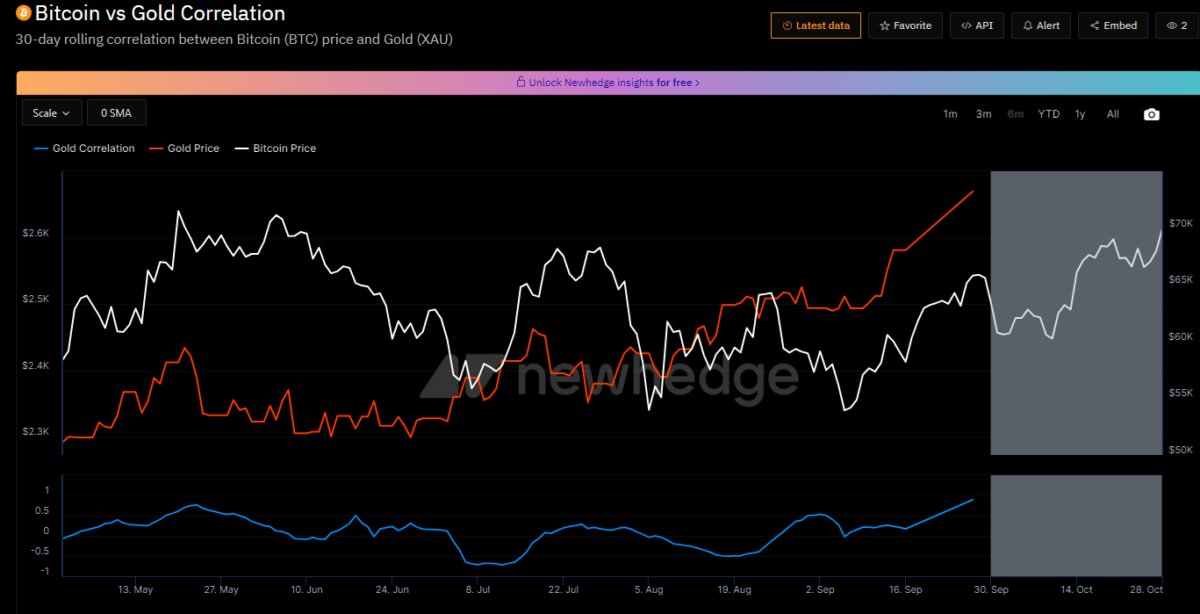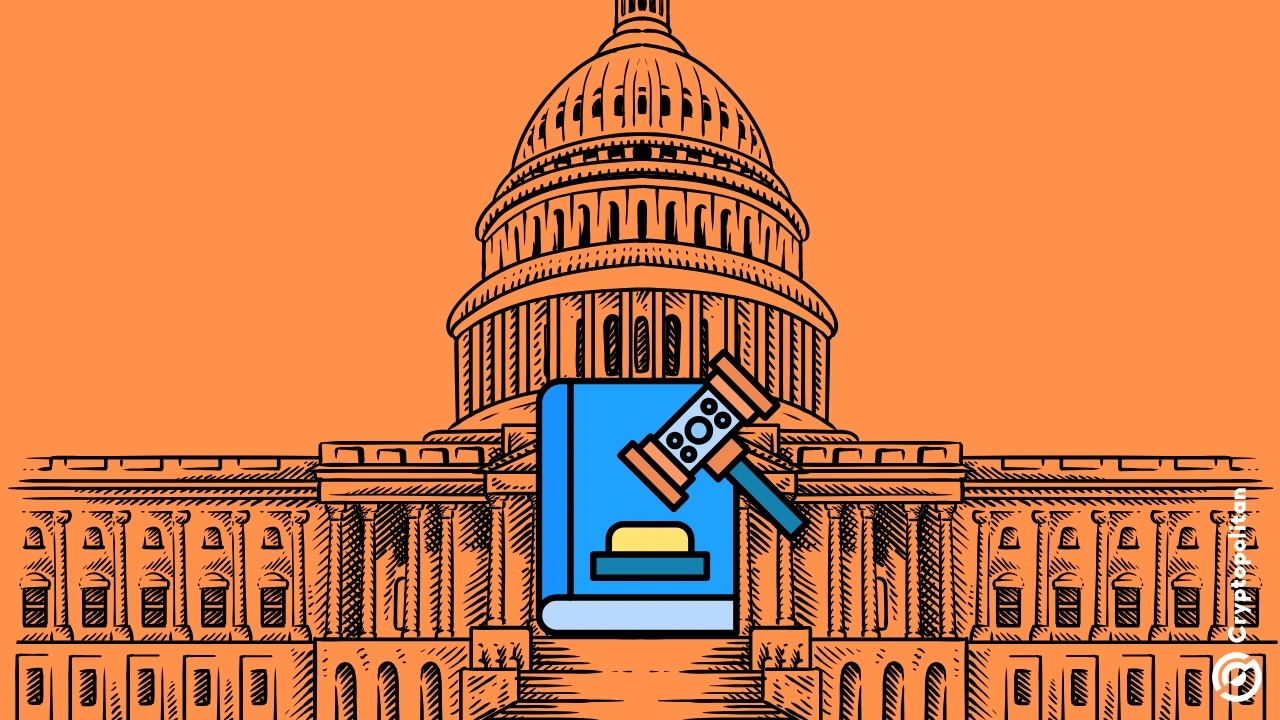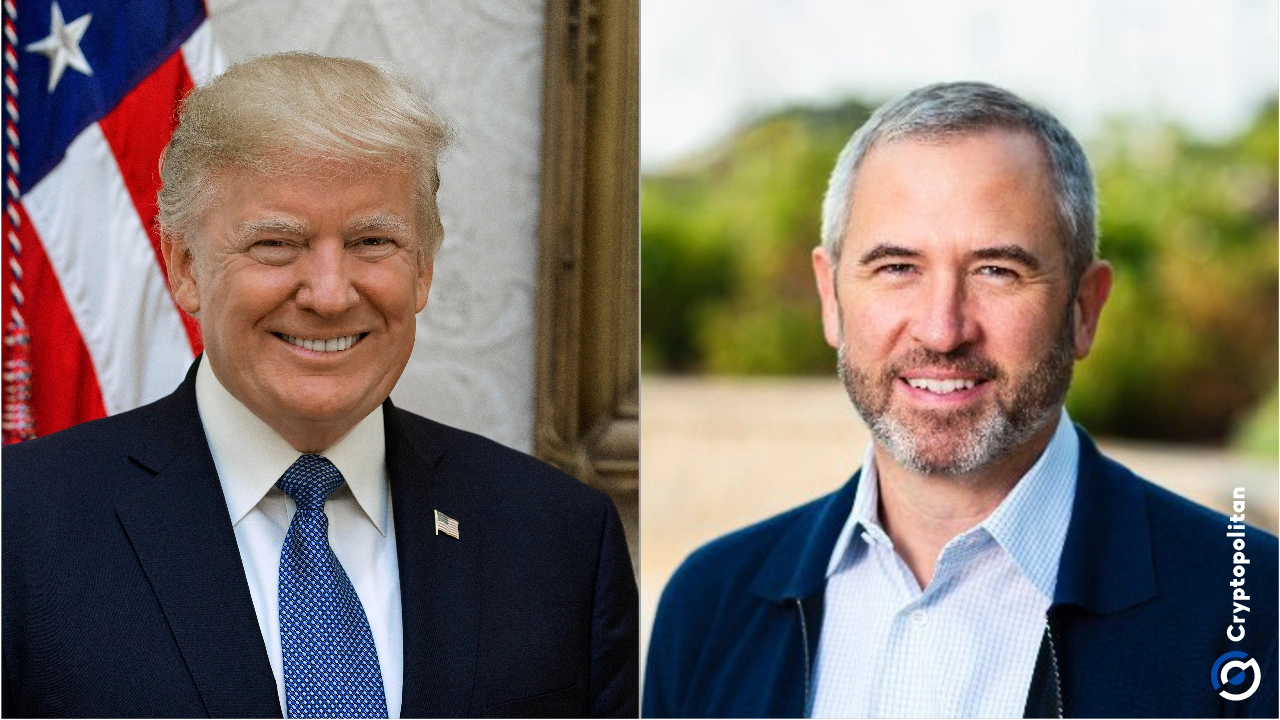Bitcoin (BTC) recovered above $70,000 with low volatility metrics. A similar gradual climb is happening for gold, showing both assets do not expect unusual price swings ahead of the US Presidential elections date.
Both gold and Bitcoin (BTC) continued to expand with low volatility, suggesting a limited probability for price swings ahead of November 5. In the last stretch ahead of the US Presidential vote, the assets extended their gains while volatility decreased in the short term.
The Bitcoin volatility index fell off a cliff in October and is down by 50% for the past four weeks. The BTC volatility shrank to 1.5%, retaining its overall downward trend. BTC remains at $2,000 under its all-time high at the end of October, but the gains were relatively gradual. BTC no longer sees a rush of buyers, but a months-long accumulation by whales.
The low volatility comes at a time when BTC is also gaining in mindshare on social media, potentially creating new FOMO. However, this time, the BTC buying may come from whales, who are careful enough not to cause big price fluctuations.
The recent expansion benefits long-term holders, while miners have also moved into a more lucrative price range, potentially breaking even with BTC above $70,000. BTC is no longer in a period of uncharted price discovery, and instead trades in a range, with the occasional breakout. Gold, until recently drifting sideways, is now outperforming in the short term, driven by ETF demand, as well as physical gold opportunities.
BTC and gold continue to rise together in 2024
Gold was more volatile overall in 2024, due to its rapid appreciation, but the index sank again in the past week. Gold traded at 2,751.72 per ounce, near the higher range for 2024. Gold achieved over 33% gains in the year to date, while BTC gained more than 88% net after its latest rally. Both assets were among the top performers for the year, suggesting a response to potential uncertainty and inflation.
The 2024 Bitcoin and gold trend follows a similar performance in 2020, when the Covid-19 pandemic sparked investments in hard money assets. The general trend of gold and BTC rising in unison continued in the past month. Both gold and BTC are seen as safe haven assets, though they can also act as speculative outperformers in the short term.
BTC and gold increase correlation
BTC and gold have been compared as potentially disparate assets. One of the arguments in favor of BTC is its extremely low annual inflation rate of 1.8%. The rate of new BTC creation is extremely slow after the 2024 halving.
In the past year, there were several periods where either gold or BTC outperformed. But in the final stretch, both assets increased their correlation and moved toward all-time records.

BTC and gold may be prepared to post a series of all-time records, accelerating ahead of November 5. BTC and gold also broke away from crypto as traders abandoned lagging altcoins. Interest in BTC also increased after Ethereum (ETH) failed to outperform based on its set of bullish predictions. ETH and altcoins lagged behind gold, which also enjoys more significant mainstream demand.
BTC has been on a downtrend when denominated in gold. After the BTC peak in March, gold took over. Currently, the BTC price in gold is relatively flat, with few signs of breaking out.
A BTC rally, however, can also happen at a greater speed compared to gold. The current trends are a snapshot and may change within weeks. Based on previous models, BTC expected a more dramatic appreciation in 2024, with a hope of touching six-digit prices.
BTC appreciated much stronger than stocks in 2024, as it does in most years. Gold is also ahead of the S&P500 index, which has a return above 23% in the year to date.
Both BTC and gold went through their year of the ETF, where the funds were one of the major drivers of demand. Gold, with its difficult spot logistics, enjoyed renewed inflows into ETF in October. The Bitcoin ETF also enjoyed active inflows, with ongoing buying from BlackRock. Both gold and BTC became more intuitive investments for new generations, especially Millennials with active, researched rationale for selecting assets.





